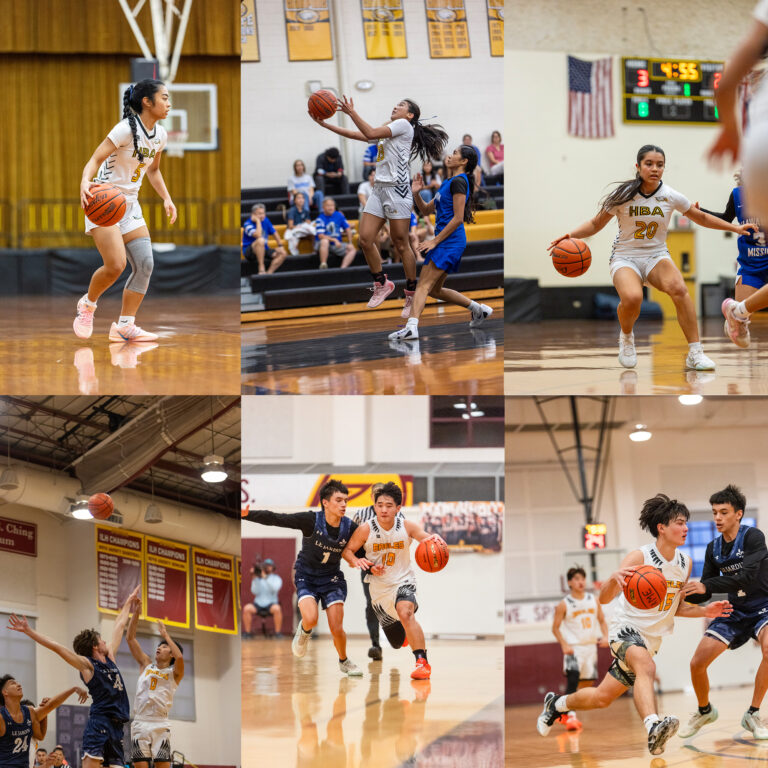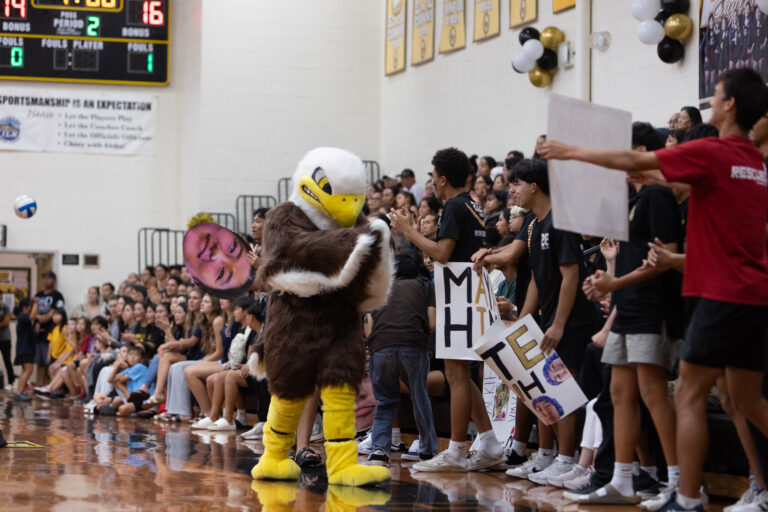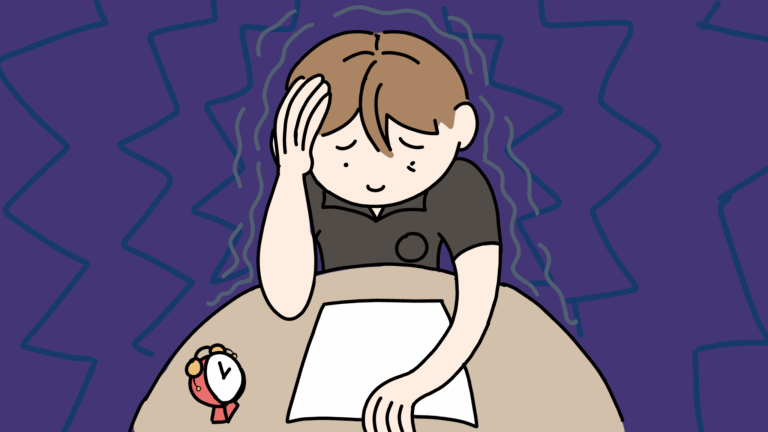From the first stay-at-home order in March until now, people have been learning to adjust to the effects of the global health crisis as it continues to progress in unforeseen ways.
To be “stuck at home” is a common expression people have used to describe their state during the past eight months of being, for the most part, quarantined. In addition to the dramatic changes to our daily routine — attending school online, wearing masks, not being able to meet up with friends — many of us have had to deal with a sense of boredom and stagnation. However, despite the sudden halt that life has come to in many areas, a few members of the HBA ‘ohana have not let this pandemic stop them from serving in the community.
Maurine King, retired HBA teacher, has managed to keep busy despite being unable to participate in her usual volunteer activities. Prior to the pandemic, King was a regular visitor to the elementary campus, reading to the kindergarteners there. She was also involved in the high school’s Mock Trial team. In the beginning stages of the pandemic in Hawaii, due to the high demand for masks, King began sewing masks for communities in need. “A geriatrician friend from Kaiser persuaded me back in March that there was indeed a need and directed me to a pattern Kaiser had posted online. Fabric I had, but thread became a problem until mainland friends started mailing it to me. For several months I was turning out up to five dozen masks a week, mostly for Wallyhouse in Kalihi and for The Salvation Army,” said King.
As the shortage of masks began to decrease, she redirected her time to a more familiar service and hobby of hers, quilting. King recalls becoming interested in sewing when she was in the fifth grade but she only started quilting seriously when Darlene Kaneshiro, the late wife of former elementary school vice principal Tim Kaneshiro, encouraged her and gave her books and equipment. “My motto is ‘When life gives you scraps, make quilts!’ And I have been given so many scraps, some from unfinished projects and some from the stash of someone’s late grandmother. Much of my time is spent just sorting, discarding, laundering, and finding others who can make use of the ‘unquiltable’ pieces,” King shared. For a few years now, King has been making wall quilts for two local organizations: Ho’ola Na Pua’s Pearl Haven, a safehouse being built on the North Shore for sex-trafficked girls, and a new recovery house for homeless patients being built by the Institute for Human Services (IHS). King hopes her bright and cheerful quilts will provide a sense of comfort for those who receive them.

“Gradually, I realized that quilting was not just a guilty pleasure but could be a ministry. One thing led to another, and I began making wall quilts for clinics, shelters, and orphanages. They are all over town and actually all over the world,” said King.
Like King, sophomore Trislyn Maeda looked outward to help vulnerable communities during the pandemic. During the October fall break, with the help of her parents, Maeda made packages for the homeless, containing items such as masks, toothpastes, wipes, soap, toothbrushes, sanitary pads (for women), new t-shirts, and a bento meal. In addition, she made lists of community resources and motivational quotes. She said that she realized how people are more likely to prioritize their own struggles and needs during a time of crisis and so she wanted to make sure she wasn’t just focused on herself during the pandemic.
“I think I’m very blessed to have two parents that still have their jobs,” said Maeda, “and I think I have more than enough and have enough to give. So I just wanted to give.” Because it was her first time providing a direct service to the homeless community, she wasn’t sure how people would react. Maeda was relieved to receive many warm responses. “This one girl…she saw me give one to this guy and then she came up to me and asked me for a bag and for her friends too that were with her so I thought that was really cool. And then this other guy was really thankful for it and he gave me a thumbs up and a smile, which was really sweet,” Maeda recalled.

Maeda found the experience inspiring; interacting with people on the street gave her much to think about. “Just being able to see that people with just so little can be so grateful and put on a smile when most of us with more can’t do that sometimes or we choose not to do that…but I think when we’re at the weakest is sometimes when we’re the most grateful.” Her experience has encouraged her to think about doing the same thing again in the future. Maeda added, “My mom shared a post of my project and some of her friends saw it and they were asking how they can help and if I needed anything, which I thought was really sweet of them. I guess just little acts of kindness will carry on and keep going.”
While many service projects by HBA student groups are currently on hold, the National Honor Society has taken on the challenge of continuing to plan service projects this year. The Fundraising Committee, co-chaired by seniors Lan Lan Lee and Kellie Takai, has kicked off the year with the committee’s annual Christmas wreath selling project. Takai explained, “Every year, the wreath sale allows our NHS members to sell fresh wreaths to their family, friends, and teachers for the holiday season. The funds are donated to a non-profit organization or charity of our choosing.” Funds raised in the past have been used to sponsor Kenyan school-aged children (through Cherish Meru) and last year, the fundraising committee combined the wreath sale funds with the donations received from the annual high school Spirit Week competition and gave it to Ho’ola Na Pua, the safehouse that King makes quilts for. This year’s wreath sale will benefit HBA’s Eagles Kokua Fund, a tuition assistance fund that was started this year to help HBA families affected by the COVID-19 pandemic.
“The pandemic took a toll on our normal planning procedures,” Takai explained. “In past years, our committee primarily contacted and finalized orders in-person. Now, we have to schedule meetings and work days through online communication.” In addition to having to adjust their normal planning routine for this project, the committee has chosen to sell the wreaths directly to teachers this year rather than through NHS members. Despite the changes and challenges, the committee has seen a boom in their sales; the wreath sale count has gone from 273 in 2019 to over 400 wreaths this year. Lee said, “Just talking about wreaths during the Christmas time has that kind of joy to it that brings people together.”

Lee feels that working hard to serve others, even with the current pandemic restrictions, highlights the purpose of service. “Still having these projects, still virtually trying our best to do things…that helps us to focus more on giving back to others and having a servant’s heart, and that is what we truly value,” she said.
In addition to the NHS’s Fundraising Commitee, a new committee was added to the club this year called the Rags to Bags Committee, led by co-chairs juniors Reese Yoshikawa and Kisa Tamai. They are currently collecting used clothing and materials to make items such as pencil cases and bags in an effort to encourage recycling and to raise money for a good cause. Yoshikawa said, “I had the idea in seventh grade to up-cycle clothing into pencil cases for some kind of profit, but at the time I was too young to execute my ambitions. This year, I knew that the NHS would be short on opportunities to serve the community, so I proposed the idea and it eventually evolved into what it is now: an earth-friendly opportunity to serve.”
The committee has had to be creative in finding ways to spread the word about the drive. Yoshikawa said, “Usually we could hang posters around campus, make announcements, and remind people in the halls. However, we’ve had to find a different way to spread the word. We decided it would be best to advertise on social media, the morning announcements video, and the weekly bulletin. And we got the class councils of the grades to send out emails to spread the word.” The committee plans to sell their upcycled products and donate the profits to an enviornmentally-friendly charity, which has yet to be selected. Co-chair Tamai hopes the project will inspire students to become more environmentally conscious. “One of the last things that people care about when their lives are busy with work, school, etcetera is the environment…even though it is one of the most important things that sustains us. Therefore, we should try and shift our priorities from ourselves to the Earth because it serves us more than anyone or anything,” she said.
Yoshikawa summed up her motivation for the project, saying, “Serving goes beyond the action itself. Yes, volunteering and serving gets stuff done, but it also provides comfort and restores faith in humanity and the world, comfort that everyone needs right now.”







